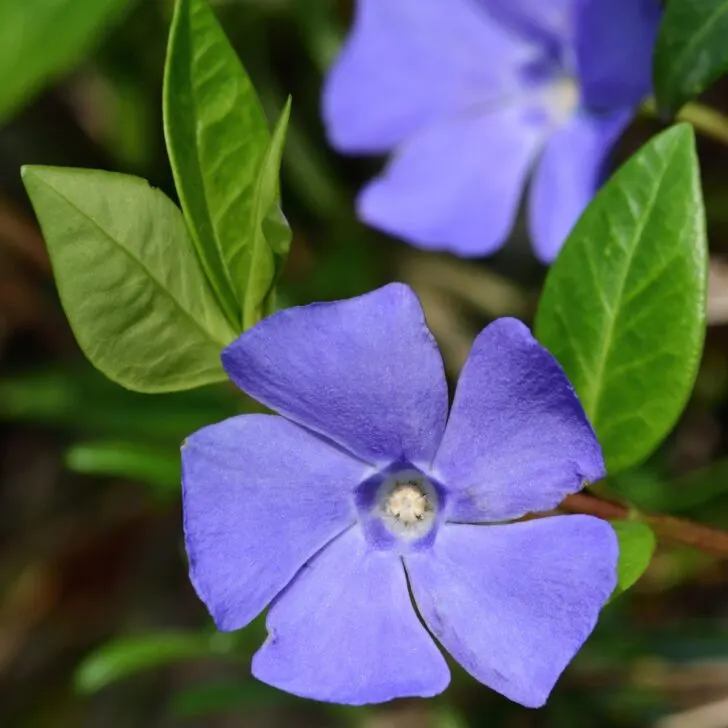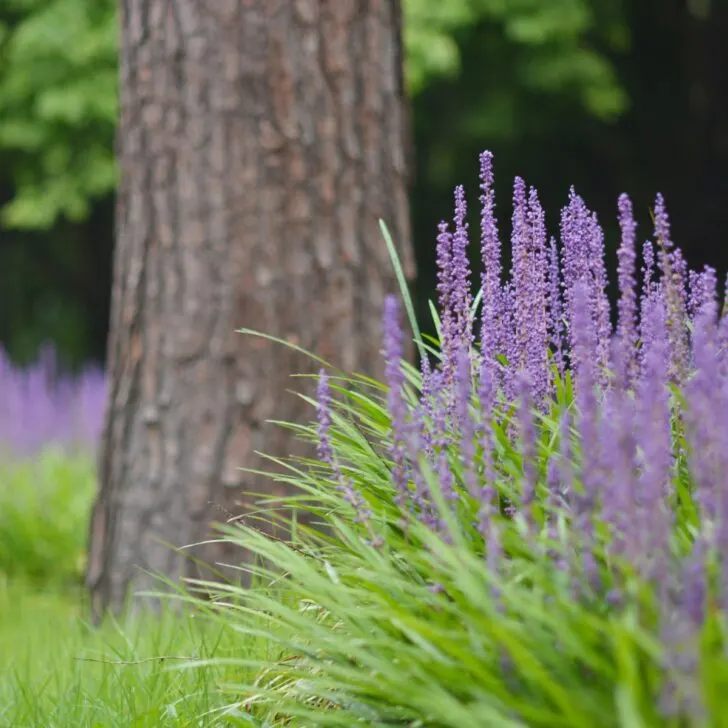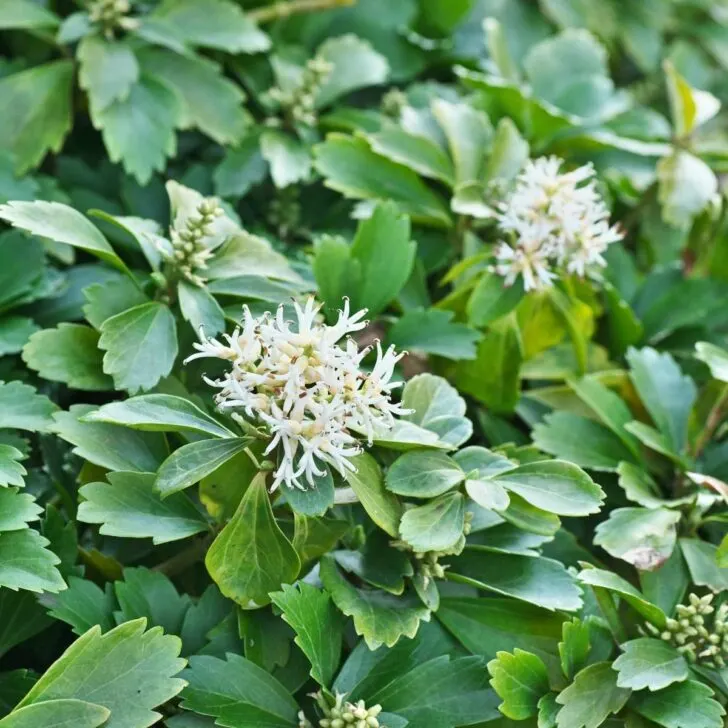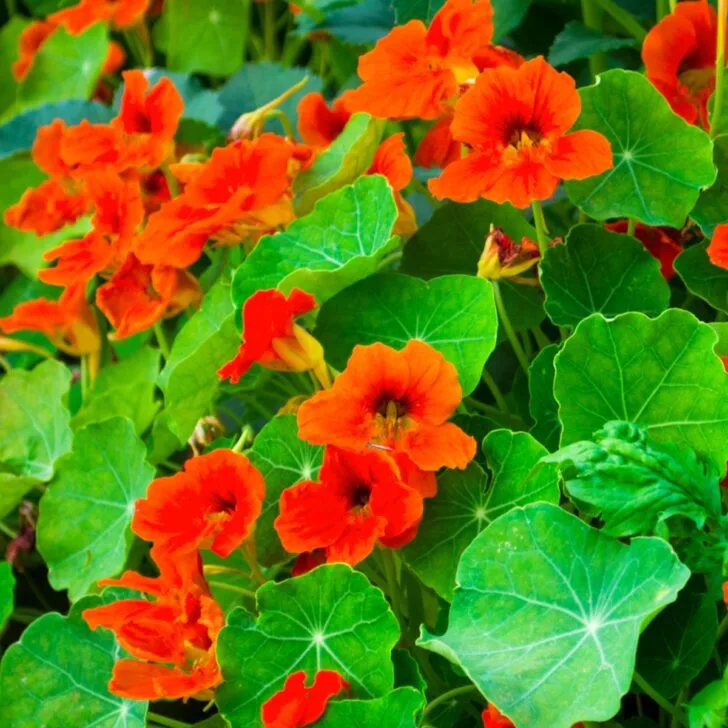Lily of the valley is an early-blooming perennial with a lovely scent that thrives in a shady garden. Learn how to grow lily of the valley in this article!
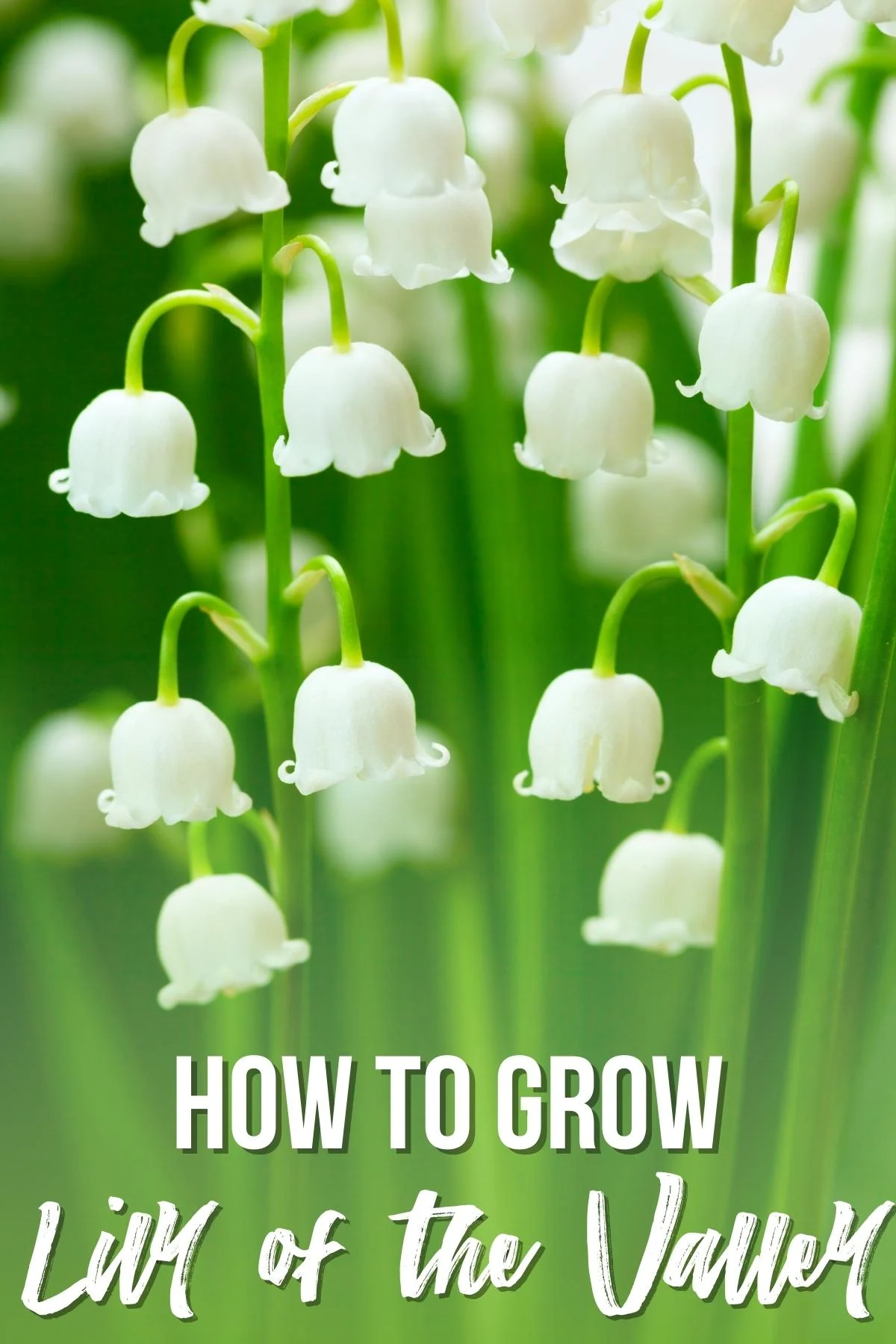
Lily of the valley, also called lady's tears, is a perennial plant with vertically rolled, dark green leaves that unfurl in early spring, and then die back in fall. The adorable, tiny flowers appear in April and May, dangling like small bells from the stems.
In France, there is a tradition to give your loved ones a bouquet of these fragrant flowers on May 1. We were in Paris for our 10 year anniversary on this date, and there were little stands set up all over the city selling lily of the valley bunches!
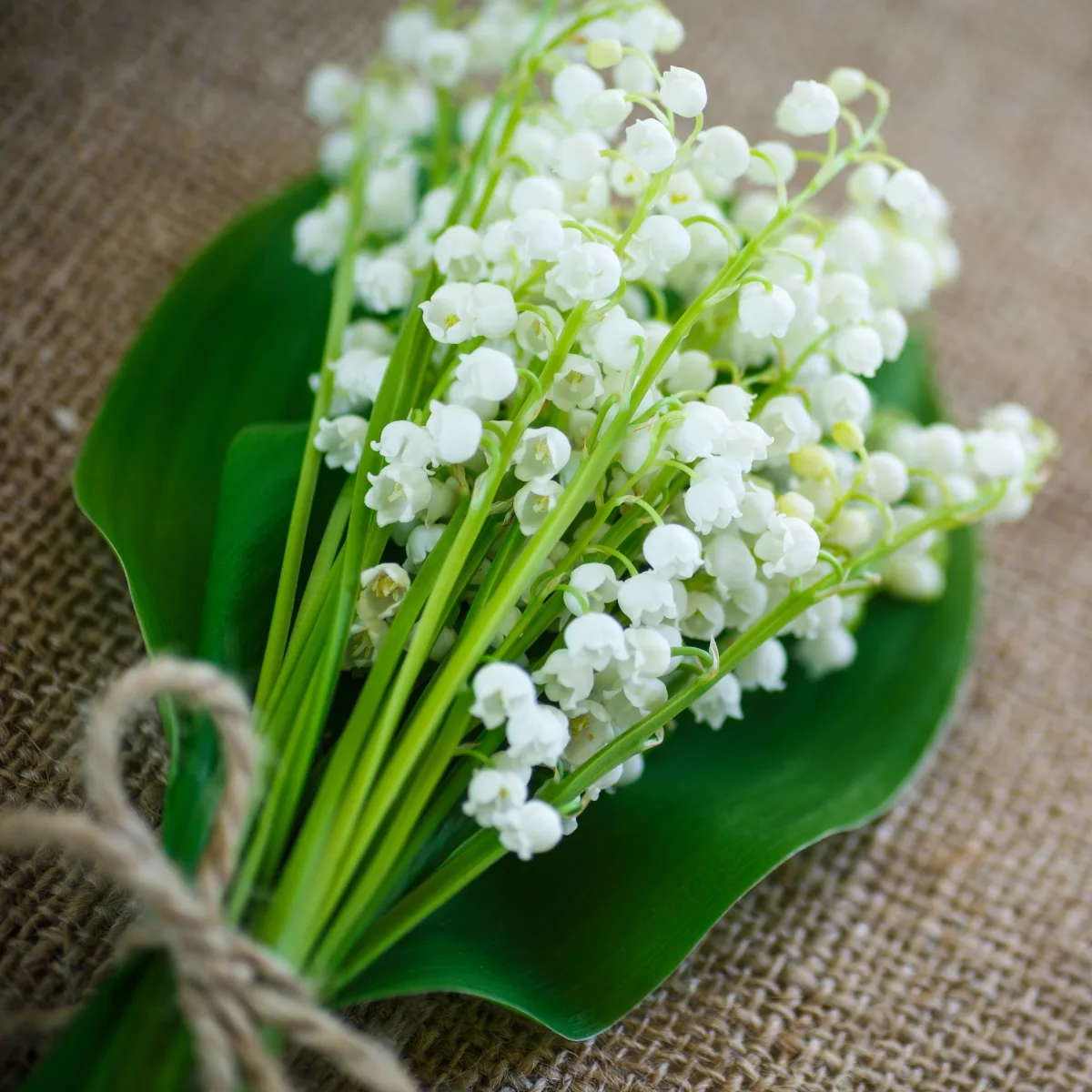
The flowers produce red-orange berries if you plant two or more varieties near each other for cross-pollination. The plant spreads through rhizomes, making it valuable for ground cover in locations with low light levels.
This post contains affiliate links for your convenience. Purchases made through these links may earn me a small commission at no additional cost to you.
Lily of the Valley Varieties
There are three primary types of lily of the valley. The European species, Convallaria majalis majalis, has smaller flower bracts. The North American species, Convallaria majalis montana, has more prominent flower bracts and is less invasive. Convallaria keiskei is a separate species from Asia.
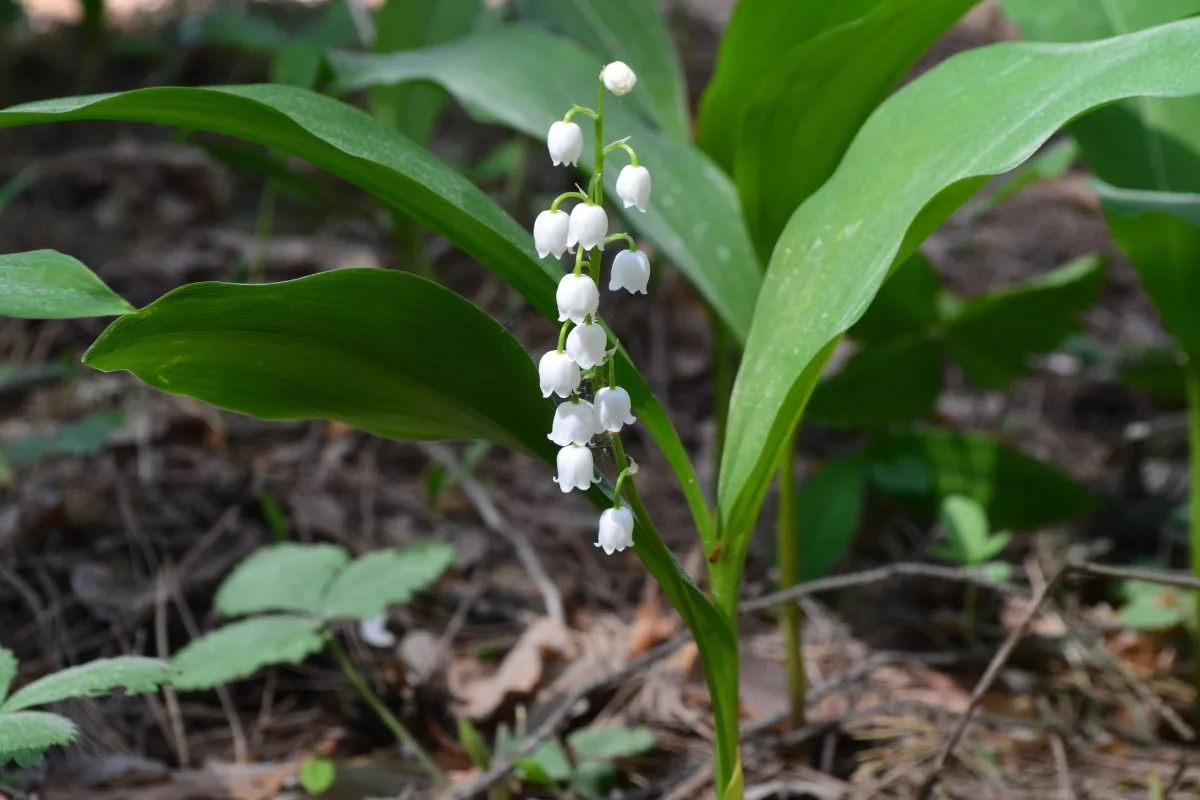
Most types have white flowers, but there are also pink flower cultivars such as ‘Rosea’ and ‘Dora.’ Additionally, plant breeders have developed a variation with sturdier stems named ‘Bordeaux,’ and the cultivars 'Albomarginata’ and ‘Albostriata’ have variegated leaves.
When to Plant Lily of the Valley
The optimum time to plant lily of the valley is early spring when the plant is still dormant. However, if you have potted plants, you can transplant them into the garden anytime in spring or summer.
Where to Plant Lily of the Valley
Lily of the valley is a low-maintenance perennial in zones 3-9 that grows in full to partial shade. It’s an excellent option for planting under trees or shrubs, in woodland areas, or on a slope where the deep, spreading roots can help with erosion control.
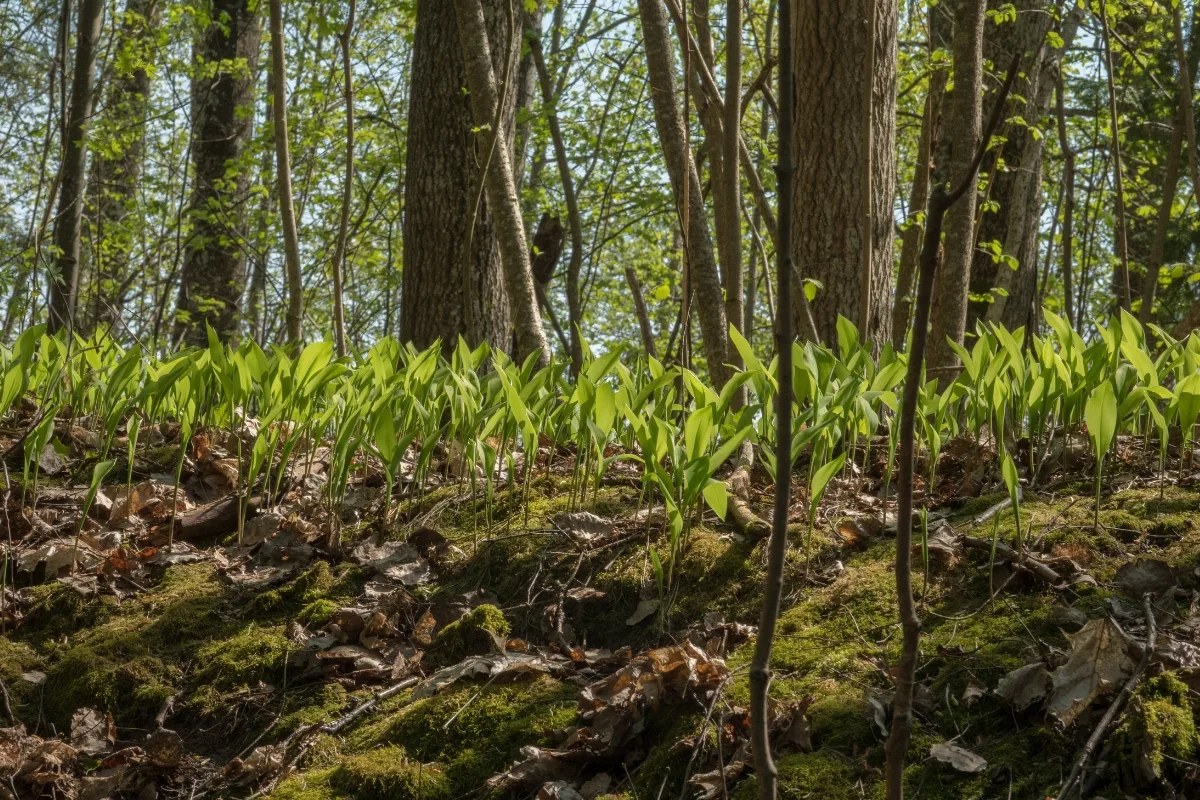
I have lily of the valley growing under a large ornamental grass in our front garden. Most of the bare area you see in the photo below will be covered with these beautiful flowers in late spring. Other plants have struggled to grow in this north facing spot due to the low light conditions.
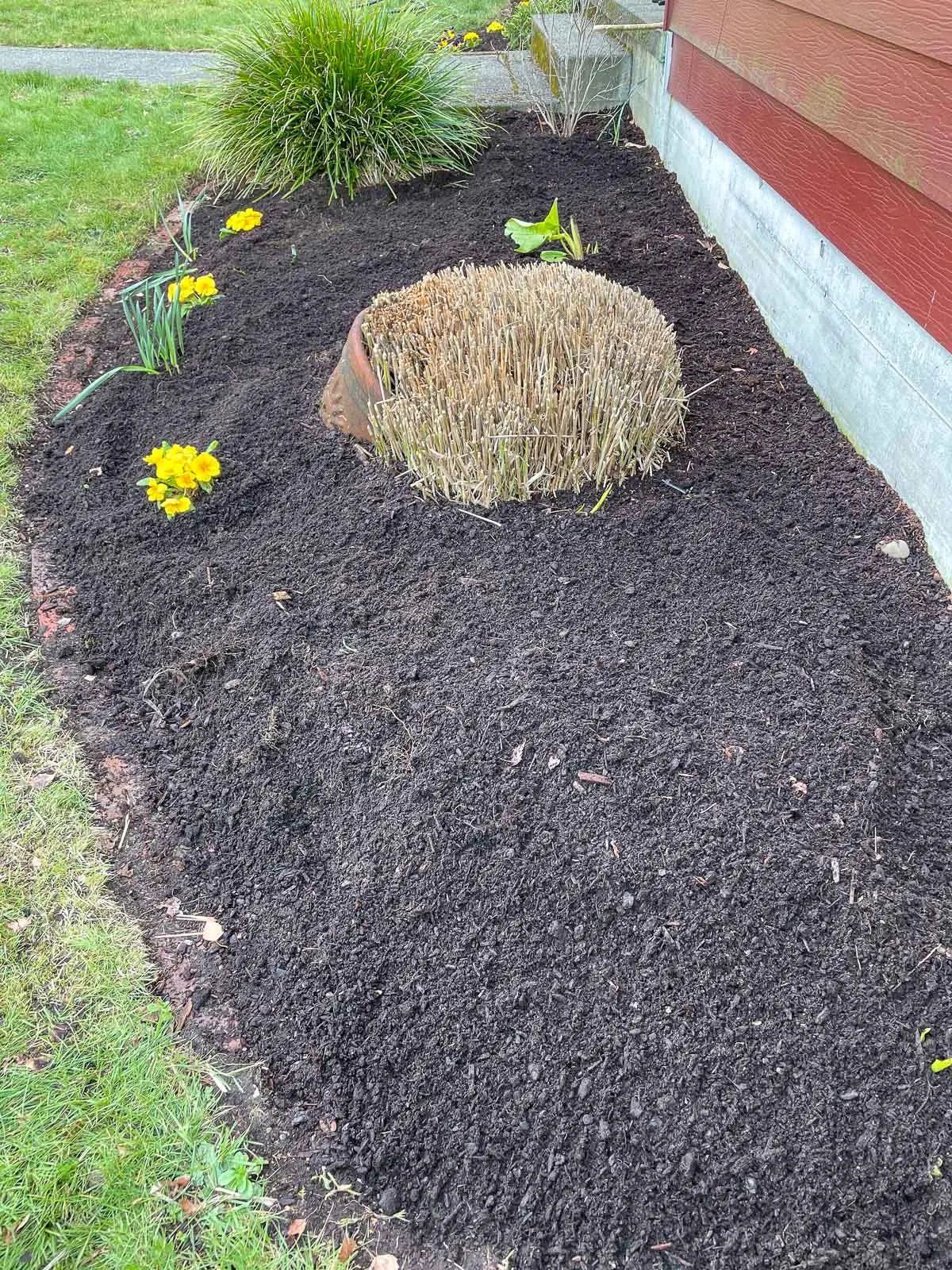
Choose a spot where it has plenty of room to spread through its rhizomes. Unfortunately, lily of the valley can spread too much and become invasive. It is considered an invasive plant in Wisconsin and Alaska, so if you live in those states, you should not plant it in your garden.
If you don’t want it to get out of control, consider planting it in a location with a barrier, such as a concrete or brick border, to keep it in check. You can also prevent spreading by minimizing how much water you give it.
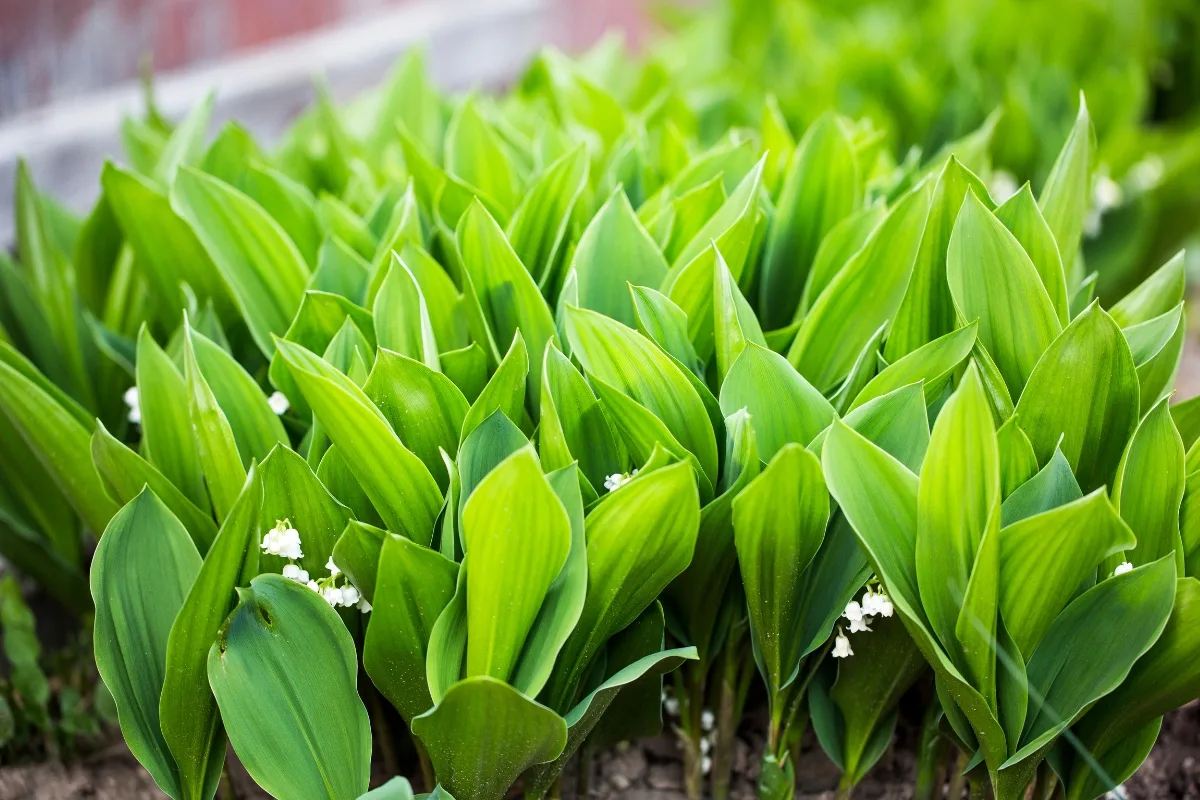
It is possible to grow lily of the valley in pots as long as they are deep enough to accommodate the extensive root system. They make an excellent filler plant in a spring container with late blooming tulips!
Lily of the valley can grow in a variety of soils, including clay soil, but it thrives in slightly moist, organically rich ground. It also does well in shady rock gardens, cottage gardens, and naturalized planting areas because rabbits and deer don’t eat them. However, keep in mind that all parts of the plant are toxic.
How to Plant Lily of the Valley
Lily of the valley propagates easily by division. So, if you have friends who grow it, ask for some rhizome sections to transplant into your garden.
You can also easily find it online sold as bare root plants (also called a 'pip') or as a potted plant. You can start it from seed, but it takes two or three years for plants to grow and start flowering.
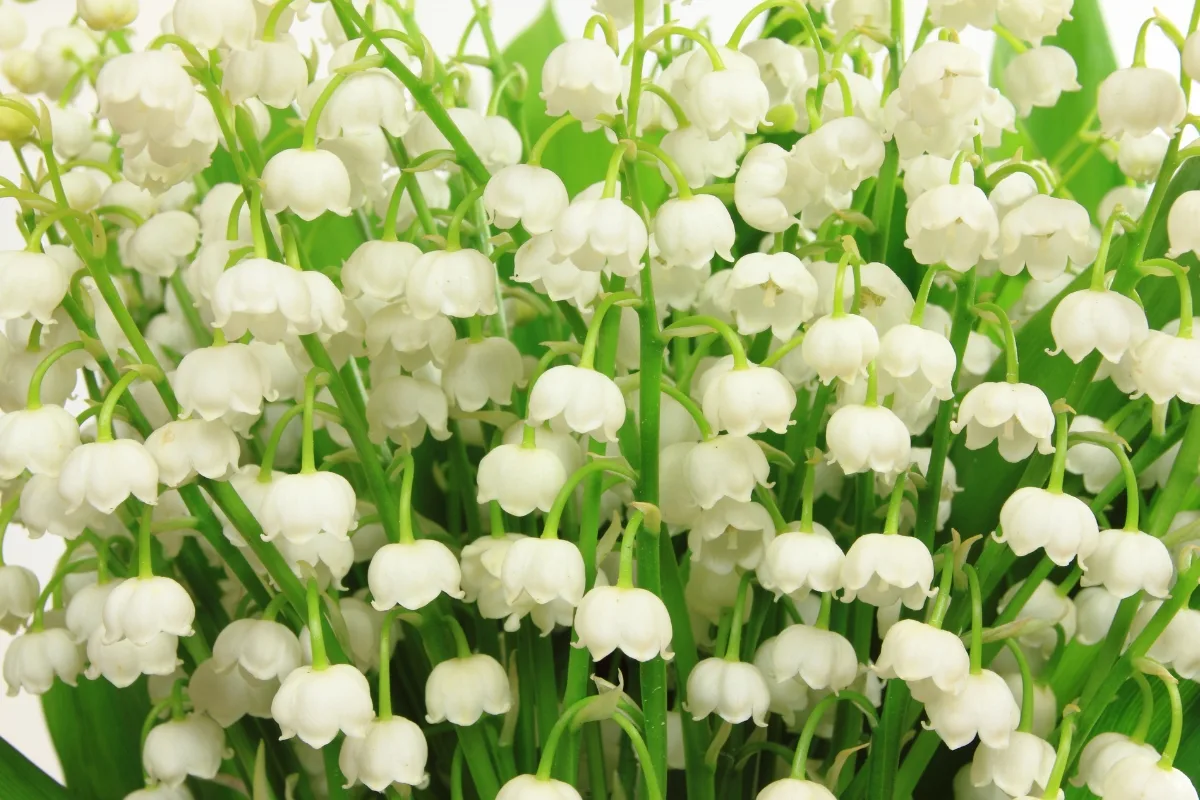
To plant rhizomes, place them 3 inches deep into the soil, measuring to the bottom of the rootstock. You can plant rhizome sections a couple of inches apart or space them farther away and let them spread and fill the ground between plants.
Once the rhizomes are in the soil, cover them with compost or mulch, water them, and keep them moist until they get established.
How to Care for Lily of the Valley
Lily of the valley requires little care except for spreading some mulch, compost, or aged manure over the beds in late fall and occasional watering, especially in hot, dry conditions. The flowers will fade away in late May, leaving the green foliage to act as a groundcover for the rest of the summer.
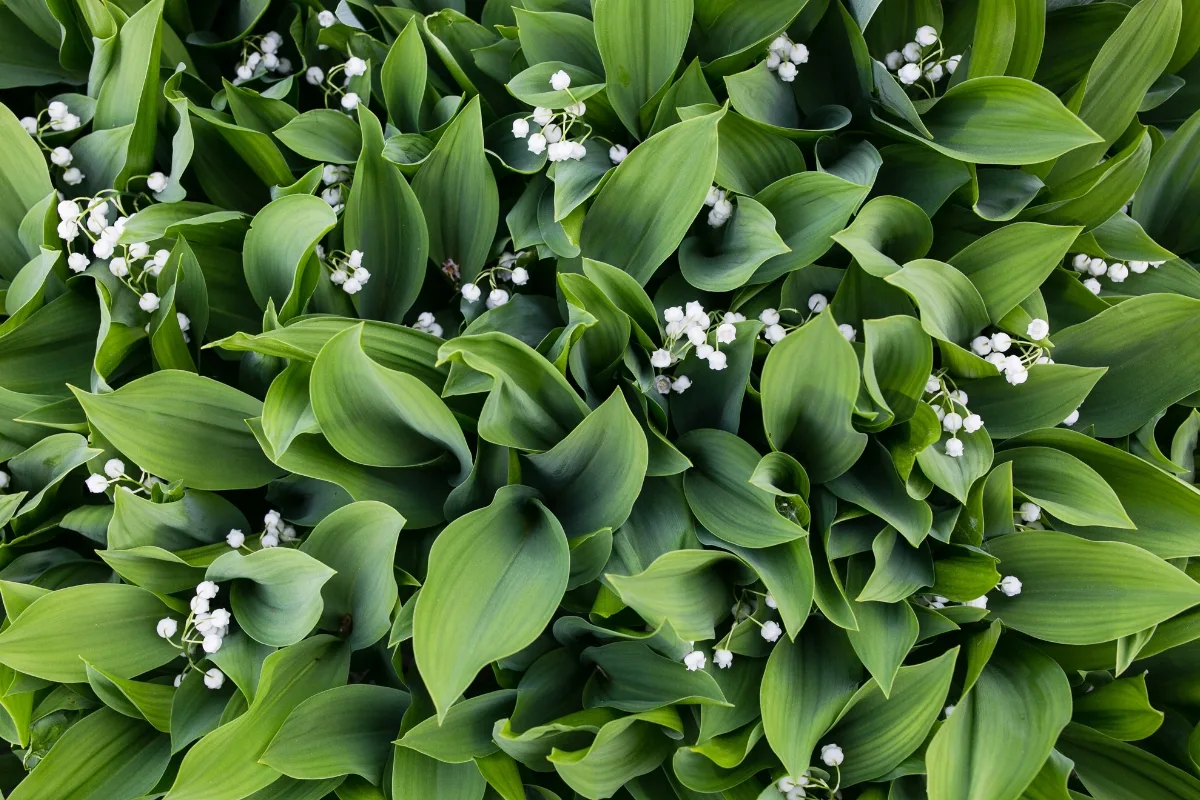
Insect pests are rarely a problem, but the plants can develop leaf spot. Leaf spot is a fungus that appears as small, dark spots on the leaves. To control it, remove infected foliage or use a fungicide according to package directions.
At the end of the growing season, the leaves turn yellow or brown and die back. At this point, you can prune them down to the ground to tidy up. Don’t cut leaves back while they are green because the foliage goes on photosynthesizing and nourishing the roots after the flowers fade.
Frequently Asked Questions about Lily of the Valley
Yes, all parts of lily of the valley are poisonous and should be handled with care.
Lily of the valley typically blooms in April and May.
No, deer and rabbits will not eat lily of the valley.

